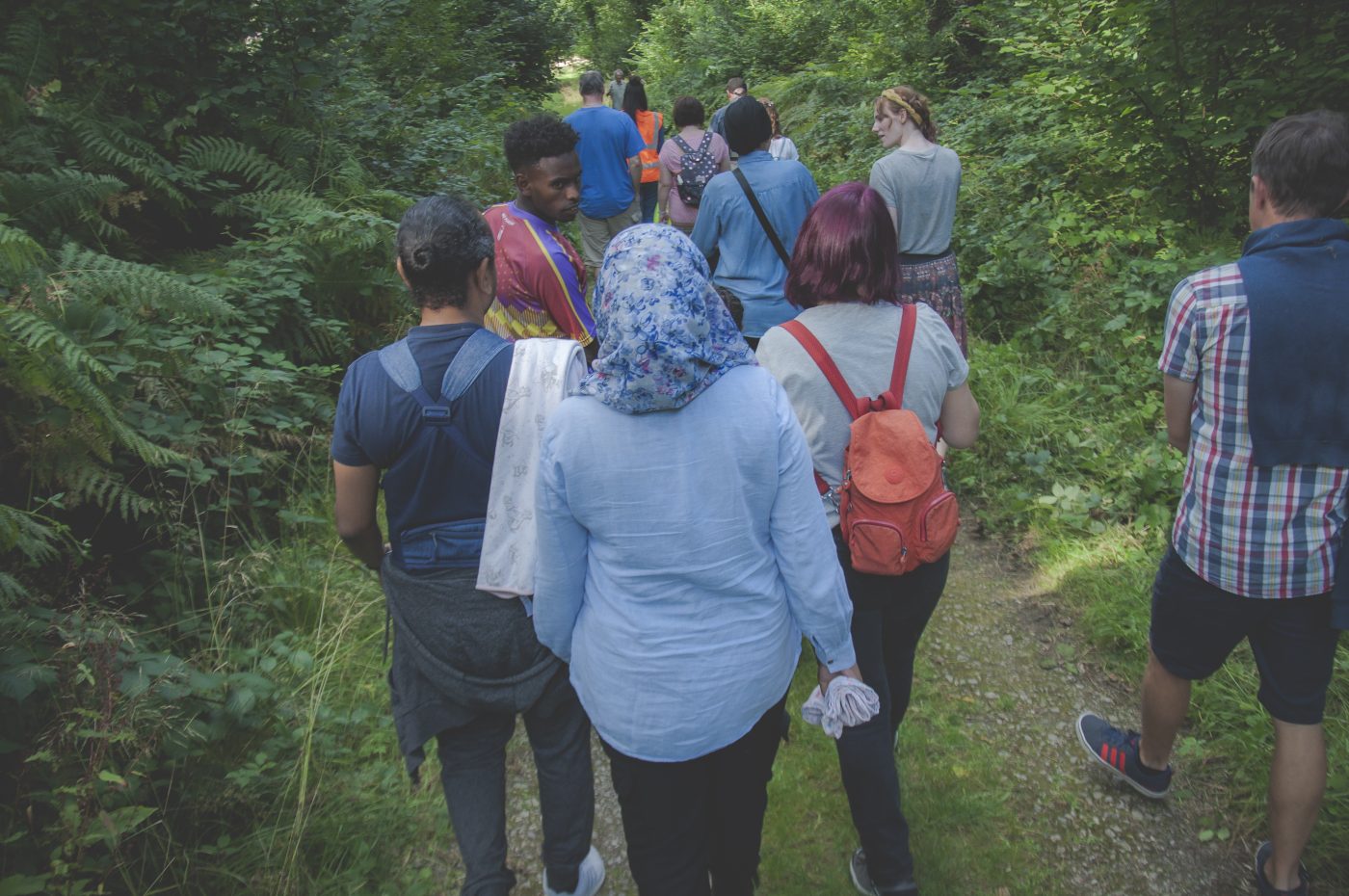Fr. Martin explains how, in the darkness, danger and loneliness of living on the streets during this time, this Venezuelan family reached out to the man and welcomed him into their life as part of their family. Fr. Martin goes on to say how the family continued their journey to Chile together and stayed a short while in the parish where Fr. Martin works. He hopes this story illustrates what it means to be a pilgrim for Christ, and shows the spirituality of ‘welcoming the stranger’. He is hopeful this story can be an inspiration to us all and serve as a reminder of what it means to be a true disciple of Jesus Christ.
Over the last year the Columbans have been happy to collaborate with Birmingham-based refugee charity ‘Stories of Hope and Home’ in organising facilitated encounters between educators and people seeking safety in the UK. So far, these have included youth ministers, teachers and families together at St Cassian’s retreat centre during August, and headteachers joining refugees at a retreat centre in Wales in January. With preparation and follow up, these programmes are helping challenge misconceptions, build friendships and invite educators into action for the common good.
The methodology is based upon encounter and reflection, and so this article continues in that spirit, with a dialogue between Tawasol Abdelsamad (T), architect, wife, mother and refugee from Sudan, and Neil Roseman (N), who leads communications for Northampton Diocese. This dialogue first appeared in Inspire, published by The Tablet.
T – I joined the Festival of Encounter because I love to visit new places and meet new people, to hear new stories and share mine. For me, people can know more about refugees and asylum seekers if they meet them, they can know them. If you meet someone, it’s different. You can feel their emotions, how they feel, all the difficult things. Why did you come?
N – I was invited, and at the same time, I felt that God was calling me to do something outside of my comfort zone. I responded before my brain had a chance to say, “Oh! You shouldn’t do that!”… What you said is so true. The moments that really stood out from our time at Kintbury were the informal ones: meals, walks, casual conversations in the garden or around the campfire. It was the intimacy of the relationships that grew in those moments, alongside the programme. It’s easy to be caught in a bubble, or even just to hear statistics about refugees, but through an encounter you meet the person. The statistics are important because they are made up of individuals, each of whom matters, every story is important.
T – Stories can push people to think of others and how they can change their lives; what they can do to help people, to change situations, even to challenge rules, to help them. Stories can change people’s hearts!
N – Facts are important. But we’re talking about human beings, we’re talking about a soul, and the dignity that comes with that.
T – Some people have in their minds misconceived ideas about refugees and asylum seekers. They think people come to this country just for money… for example, I am here, I didn’t come here because I needed a job or money or a house… we came here because my husband had a problem with the government. He had a house, a big family, had a job. We left everything we had, to come here, for freedom and safety only. Not money. We came here to be safe.
N – The biggest value of the encounter for me is awareness. Awareness of the world in which we live, an awareness of other people’s struggles, and predominantly, an awareness of the great hope people carry, this deep hope for the future and for others.
T- I’m pleased that you mention hope. When people are connected, there is something in your soul that pushes you, it looks different… you don’t just want to give him something, no, you are called to care, to love.
N – I came looking for ways in which I could give, but it was actually the opposite that happened. I left the encounter knowing that I had gained an awful lot more. We happen to be in a position where doors have opened for us, where they are not opening for others in this country. That’s the huge privilege that we have. I can be loud, and hopefully, through my voice, my privileged voice, open doors. There is a lot that can get in the way of us really living out our faith, stopping us actually doing what we’re called to do, putting our faith into action, reaching out to the most vulnerable, to people who just need us to recognise them as human beings. This programme helped me profoundly, spiritually, to live out my faith. This journey has changed my heart.
T – I hope we can do a lot of encounters like this in the future. People change their minds, their hearts, we need more people… then the country can be good for us! Maybe the government can change its rules. It takes time but it’s good to start, it’s good to try.
N – As I think back, I think there is a fear, that entering into a relationship, in the unknown, meeting people with different stories to ourselves, that somehow we lose a bit of ourselves, that we lose something. The opposite is true. You gain. When we give, we become more.

